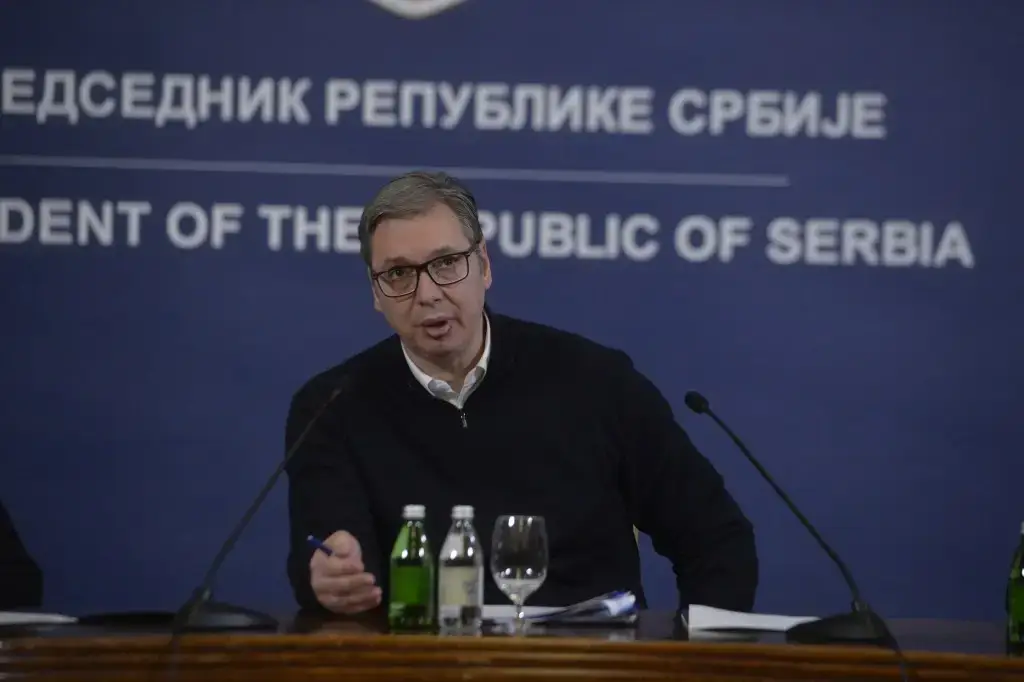President of the Republic of Serbia Aleksandar Vučić announced today that the NIS Refinery is in the so-called “quiet run” process and that we have four more days until the complete suspension of operations, if OFAC does not approve the licence.
- Serbia
Get to know Serbia
- Citizens
Culture and science
Health services
Pension and disability insurance
- Business
Employment
Economy
- Media
- Government
- Contact
Keep in touch
Keepin touch
Whether you have a question, comment, suggestion or any problem in the purview of the government, send us your message and we will try to respond as soon as possible. If your problem is not in our purview, we will forward your message to the relevant institution.
OFAC’s decision on NIS licence in the next four days
In an extraordinary address to the public at the Presidency of Serbia, Vučić explained that the NIS Refinery has switched to a lower operating mode compared to the usual one, and that its operations will be completely stopped if the licence is not approved by the US OFAC, i.e., the US administration.
He said that it was expected that the new OFAC licence for NIS would be issued yesterday, but that this did not happen after additional discussions with US representatives.
According to him, the American side wants to see, hear and get more information so that it can consider and possibly make a positive decision on issuing an operating license for the next 45 or 60 days.
We cannot change anything today and tomorrow. If there is no solution on Thursday, the Refinery will stop. Only then will we be able to talk about the consequences, said the President.
The consequences are such that we will need experts – just to restart production it takes 14 days, and in practice it is always more. Count on at least 20 days, which means, as he emphasized, that it is certain that the Refinery will not operate until the New Year, and it remains to be seen what the situation will look like after that.
Vučić emphasised that the consequences of the cessation of NIS’s operations are primarily secondary sanctions.
The National Bank, as well as all commercial banks, have received a warning that they may become subject to sanctions. “This puts the central bank, but also all commercial banks, at risk,” the President warned.
He indicated that Naftna Industrija Srbije (NIS) has already started to use up its operational reserves, and will use up most of them between 28-29 November and 1 December.
If oil does not flow from JANAF by Saturday, NIS reserves of around 55,000 tonnes of diesel and around 50,000 tonnes of gasoline will remain, which, he said, is enough for the retail network until 28 December.
According to him, regardless of the planned imports of other oil companies, our assessment is that by then there will be a shortage of approximately 50,000 tonnes of diesel fuel, and we as a state are ready to intervene immediately to prevent shortages.
At the same time, Vučić announced that Serbia has done everything to help the Russian investor in NIS and to keep it in Serbia.
He noted that the government unanimously adopted his proposal that Serbia, after 50 days, if a purchase agreement is not reached, introduce its own administration and then offer the highest possible price to its Russian friends.
-
 Belgrade, 24 November 2025
Belgrade, 24 November 2025State to maintain stability of oil derivatives supply
-
 Belgrade, 22 November 2025
Belgrade, 22 November 2025"Wine Vision by Open Balkan” international fair opened
-
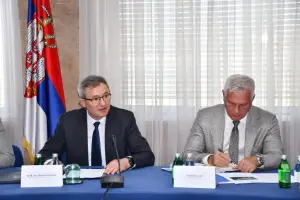 Belgrade, 27 October 2025
Belgrade, 27 October 2025Construction of Selova dam of vital importance for southeast Serbia
-
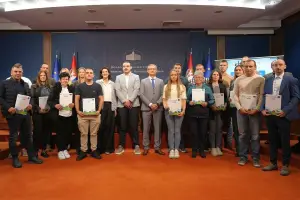 Belgrade, 22 October 2025
Belgrade, 22 October 2025First 19 resolutions awarded under IPARD III for procurement of new tractors
-
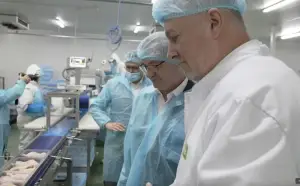 Šid, 21 October 2025
Šid, 21 October 2025Superior Foods example of successful Serbia-Hungary cooperation
-
 Belgrade/Washington, 17 October 2025
Belgrade/Washington, 17 October 2025Confirmation of Serbia’s position as attractive investment destination
-
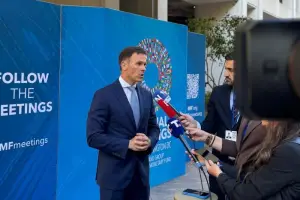 Belgrade/Washington, 16 October 2025
Belgrade/Washington, 16 October 2025Serbian economy maintains stability amid global challenges
-
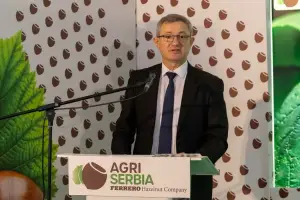 Sombor, 14 October 2025
Sombor, 14 October 2025Agriculture one of major pillars of bilateral cooperation with Italy
-
 Belgrade, 13 October 2025
Belgrade, 13 October 2025First IPARD III resolutions on support to farmers presented
-
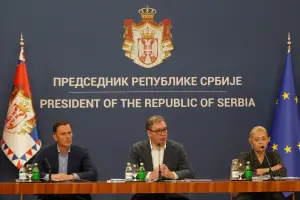 Belgrade, 21 September 2025
Belgrade, 21 September 2025Solution for legalisation of 4.8 million properties by year’s end

